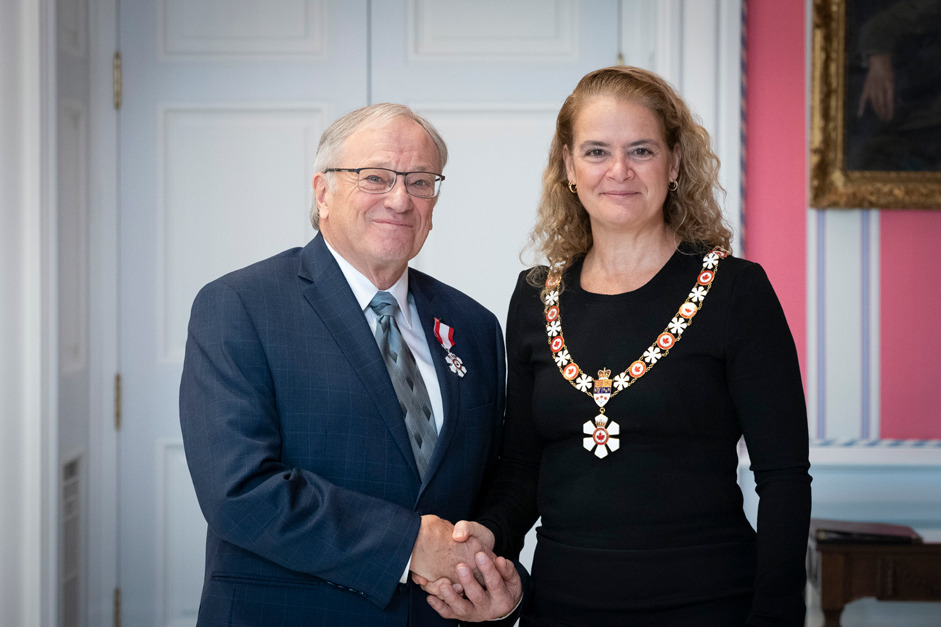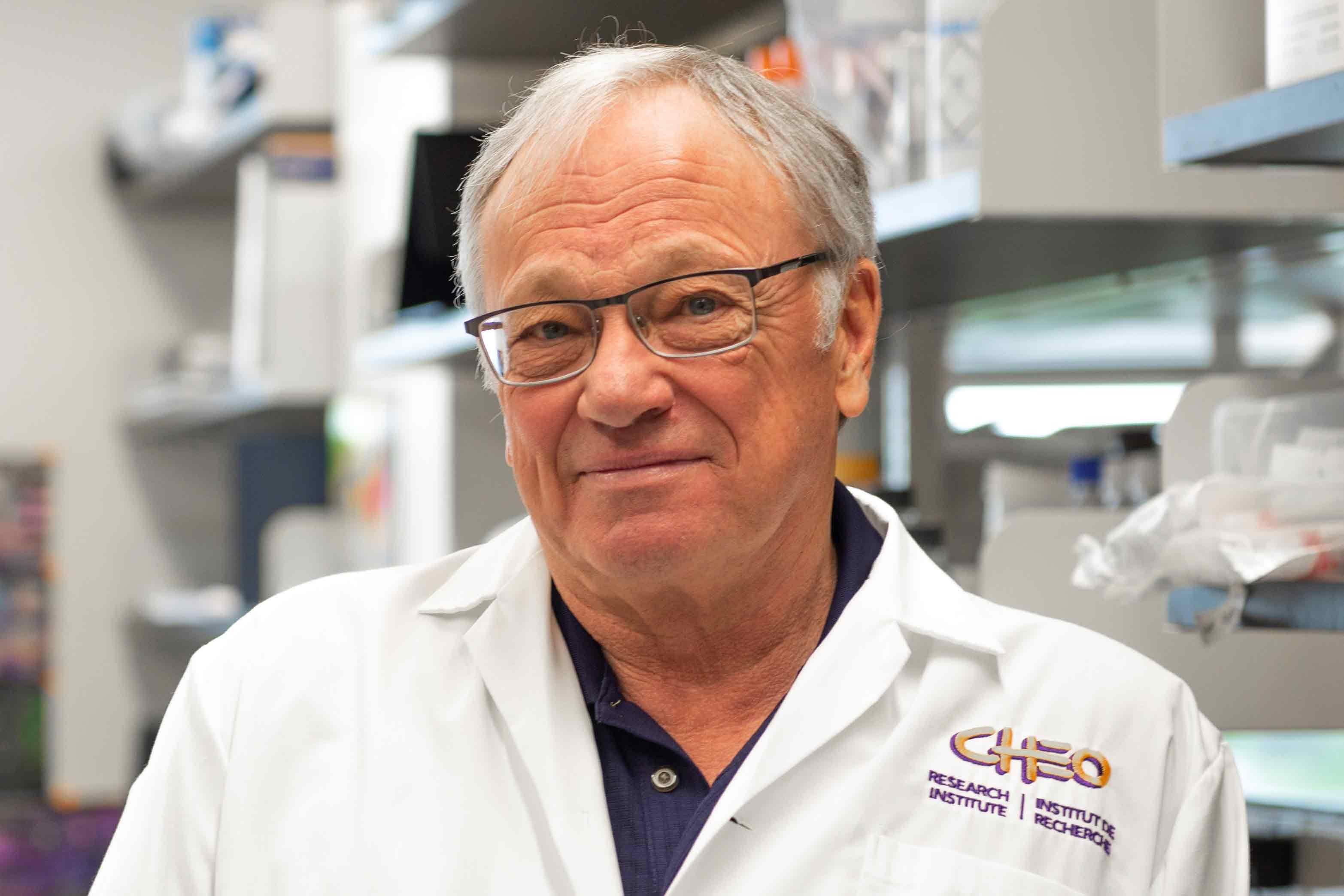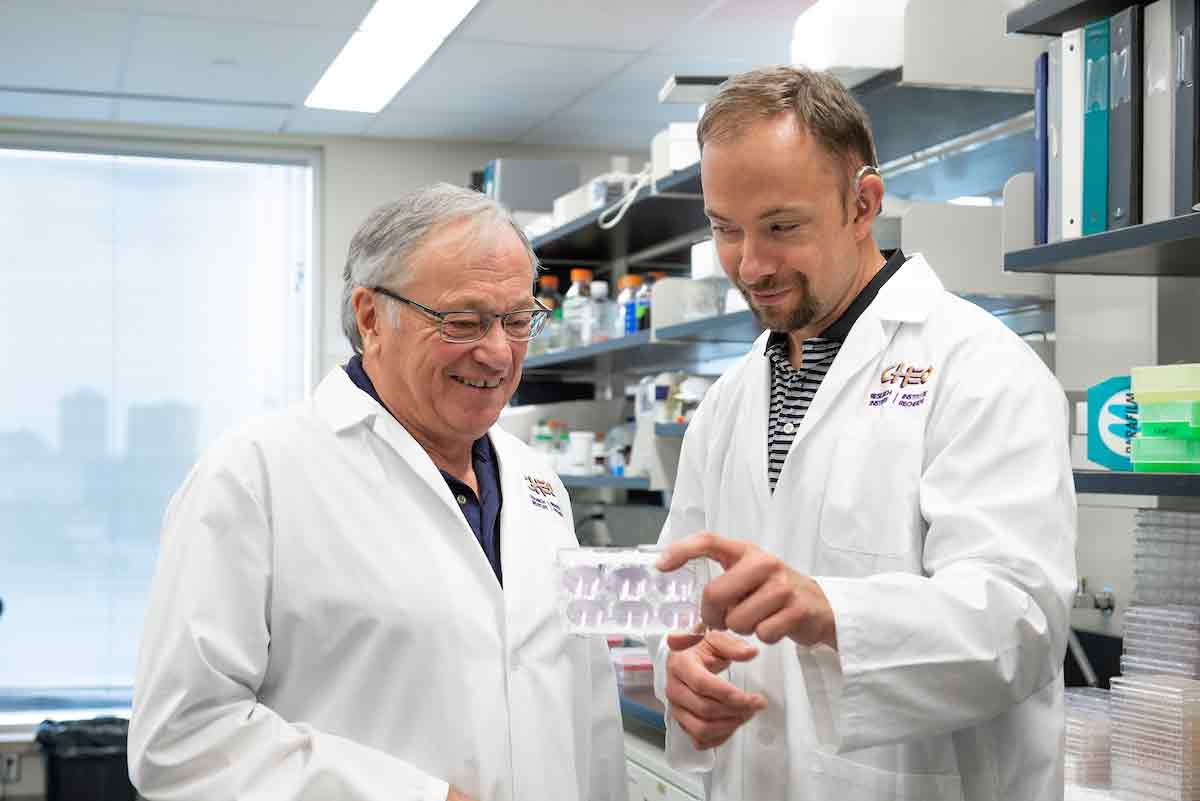By Michelle Read
The following story was originally posted in January 2019, and was updated on November 26, 2019.
Dr. Korneluk was invested as Member of the Order of Canada by Julie Payette, Governor General of Canada, in a ceremony at Rideau Hall on November 21, 2019.
With almost 40 years of science under his belt, Faculty of Medicine professor and CHEO Research Institute Senior Scientist Robert Korneluk has helped propel immunotherapy into one of the biggest buzzwords in medicine.
In 1995, Dr. Korneluk and his team discovered a family of genes called Inhibitors of Apoptosis (IAPs) that control cell death. This ground-breaking discovery has been the basis of breakthroughs worldwide in cancer, diabetes, neurodegeneration and more. It’s also the basis of his current work exploring how to enhance the immune system’s own natural response to cancers—work he says he won’t stop until it’s a proven treatment for cancer patients.
Last month, Dr. Korneluk became the first CHEO researcher to be appointed to the Order of Canada. Between knocks on the door from colleagues offering congratulations, he took some time to share his feelings about receiving the country’s highest civilian honour—and his high hopes for the future of immunotherapy.
Q: How did it feel to receive the news that you had been named to the Order of Canada?
A: I look around at all these people here and say, really? I’m the guy? The Order of Canada recognizes significant accomplishments, but I haven’t done anything yet! At least, not what I want to see happen. I can’t rest until I see the results of our work become a standard of care for cancer patients, which we’re hopeful can be proven in clinical trials.
Q: Why is immunotherapy such a hot topic in medical care?
A: Immunotherapy has truly changed the landscape of cancer therapies.
Cancers are constantly developing in your body. Your immune system targets cancer cells by recognizing them as foreign and killing them. But these cancer cells begin to mask themselves with molecules on their surface called immune checkpoints, which fool immune cells into thinking they’re part of you. It then becomes harder for the immune system to kill these cells.
Certain drugs can block these immune checkpoints, which reverses the masking process and allows the immune cell to kill the tumour cell. This treatment is called immunotherapy because it is using your own immune system to kill and target cancer cells. These immunotherapy drugs work well, and have fewer toxic side effects than chemotherapy or radiation. But now scientists are working to make them work even better.
Q: Is that where you come in – your team is taking immunotherapy to the next level?
A: Exactly. When you combine immunotherapy drugs with something else, it’s called combination immunotherapy. In our lab, we’re working with a class of drug called SMAC mimetics which, when combined with immunotherapy, give an incredible response in mice. Your body has a group of genes called IAPs, whose job it is to promote your cells’ survival—but this can reduce the effectiveness of immunotherapy. If we can disable these genes and prevent them from doing their job, which is what SMAC mimetics do, the immune response is enhanced. We’re now running clinical trials to test dosing and efficacy of the treatment. I have high hopes that our treatment combination will turn into a standard of care for cancer patients.
Q: What values propelled you from youngster in Sault Ste. Marie to life-changing health researcher?
A: I always liked biology—I was the kid collecting frogs and snakes—but I never actually had a plan. My parents were hard workers, coming from a difficult life in the Ukraine and settling in Canada with very little. I think my values simply came from growing up in a family that allowed me to do what I wanted to do as long as it was related to school. I appreciated that latitude, and I still love that freedom in what I do today.
Q: What is your advice to the next generations of researchers dreaming of making valued contributions?
A: I learned early on that the worst thing you can do is pretend you know something when you don’t. You have to say, “I don’t know this, show me, teach me.” Also, don’t overthink an idea. Too many smart people talk themselves out of doing an experiment, wary that something might not work. I say, if you want to know the answer, do the experiment!



